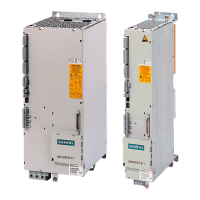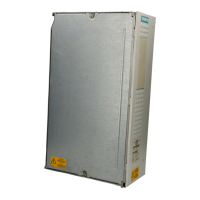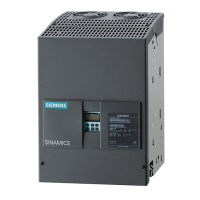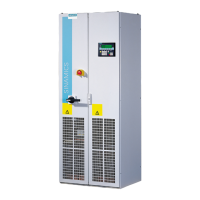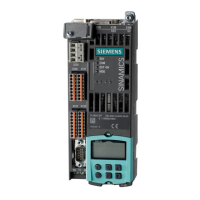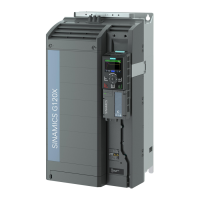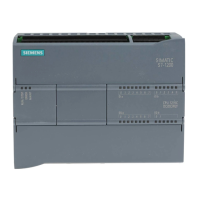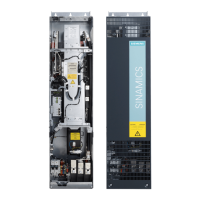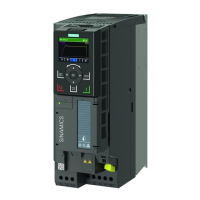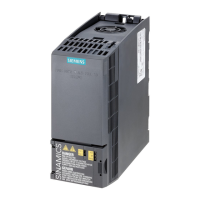9
05.01
9.7 Circuit examples =1 to =10 with SIMODRIVE 611 analog
9-266
Siemens AG 2001 All rights reserved
SIMODRIVE 611 Planning Guide (PJU) – 05.01 Edition
Functions/safety aspects
Definition of the terminology used
“Powering down in an emergency ” EMERGENCY STOP and “stopping in an
emergency” EMERGENCY STOP
S Actions made in an emergency situation according to EN 60204–1 (VDE
0113, Part 1): 1998–11, Section 9.2.5.4 should be interpreted as follows:
S Powering down in an emergency: In Stop Category 0 acc. to EN
60204–1;9.2.2, the drive is stopped by immediately disconnecting the
energy to the machine drive elements (i.e. uncontrolled stopping). This type
of shutdown is generally interpreted as EMERGENCY OFF.
S Shutting down in an emergency: In Stop Category 1 in accordance with
EN60204–1; 9.2.2 the drive is shutdown in a controlled fashion, whereby
energy is still fe to the machine drive elements is kept in order to stop the
motion. The energy is only disconnected when standstill has been reached.
This type of shutdown is generally defined as EMERGENCY STOP
S In the circuit examples, the EMERGENCY STOP function is used for shut-
down in an emergency.
The EMERGENCY STOP pushbuttons act through two channels to shut-
down in control Category 3 according to EN 954–1 using the
3TK2806–0BB4/3TK2807–0BB4 safety switching devices. When required,
the 3TK2806–0BB4 switching device allows an EMERGENCY STOP button
to be connected in a cross–circuit proof version, Category 4 acc. to
EN954–1.
S Braking using the drive inhibit, terminal 64, along the current limit.
By inhibiting terminal 64, drive enable at the NE module or monitoring mo-
dule, the drives are stopped as quickly as possible along the selected cur-
rent limit (torque limit)/ramp of the drive module.
Notice
For applications, where a spindle drive may not be braked along the current
limit for safety reasons, terminal 81 ramp–function generator fast stop must
remain energized when shutting down in an emergency. This means that the
drive can be stopped in a controlled fashion along an adjustable setpoint ramp.
S Regenerative feedback power NE module
Generally, the NE module is dimensioned according to the rated output of
the connected motor, reduced by a coincidence factor. When braking along
the current limit, it should be observed that the braking power should not
exceed the peak regenerative feedback power of the I/R modules (refer to
Table 6.3) or the braking power of the pulsed resistors in the UI modules.
For borderline cases, larger NE modules should be used, or additional pul-
sed resistor modules with external pulsed resistor.
S Setpoint and position actual value interfaces
A complete drive module with power module and control section with Stan-
dard interface and analog setpoint interface for 1FT5 motors is shown in the
block diagram in Section 9.4.1. The setpoint is controlled via terminals
56/14. The setpoint and position actual value interface of the NC control,
e.g. 840C analog, is only shown in principle in circuit example =1 These are
no longer discussed in other circuits
9 Important Circuit Information
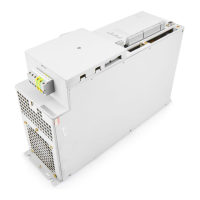
